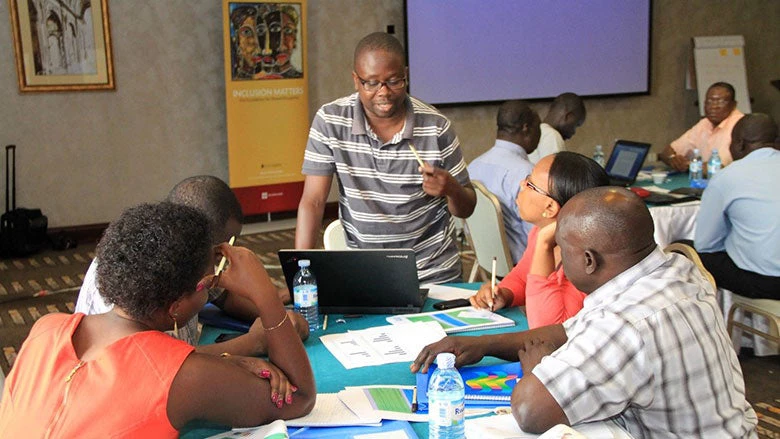
I am often asked—what happened as a result of the World Bank’s 2013 flagship report, Inclusion Matters? It made a big splash in the world of ideas but what did it do to improve people’s lives? This is not to say that ideas don’t affect the lives of people, but ideas need to percolate into practice. How do we know if a report has been relevant for development practice?
One of the really interesting ways in which the report has been used is for training. It is notoriously difficult to convert a report into a training package, but our team did just that. It collaborated with New York’s Parsons School of Design and applied design thinking to craft a creative program for Ugandan policymakers. Rolled out in 2014, right after the launch of the report, the package brought together over 40 policy practitioners from different government agencies for a five-day residential course.
The curriculum applied the tenets of Inclusion Matters to a practical, hands-on set of modules. How, for instance, can policymakers get a better understanding of diagnostics so they can better commission analysis and supervise the quality of it? Questions like these are important, as too often we hear of consultants delivering sub-standard work to policymakers who are hard-pressed for time.
The training package combined concepts of social inclusion with tools to analyze and achieve it. These tools comprise gender analysis, qualitative methods, the mechanics of good consultation, and how impact can be evaluated. A number of interesting cases showed how some interventions had made headway. Plus, the e-book produced after the training is as visually appealing as it is a solid resource for others planning similar training.
The training session was just one stop in the journey of Inclusion Matters; it was also a step towards an understanding of what inclusion means for policymakers in Uganda, a country that sits at the cusp of middle income-status yet is facing deeply entrenched issues of social exclusion. Uganda is not alone in this, as many of the countries that we work with at the World Bank fall into the same category. The course’s participants showed the way forward for future training programs—especially for policymakers, students, and other development practitioners.
Besides producing the e-book, we have also recently updated a webpage on social inclusion. Please browse through it and tell us what you think by sending us a comment.
Download an e-book for training on social inclusion issues here.
Our report: Inclusion Matters: The Foundation for Shared Prosperity



Join the Conversation